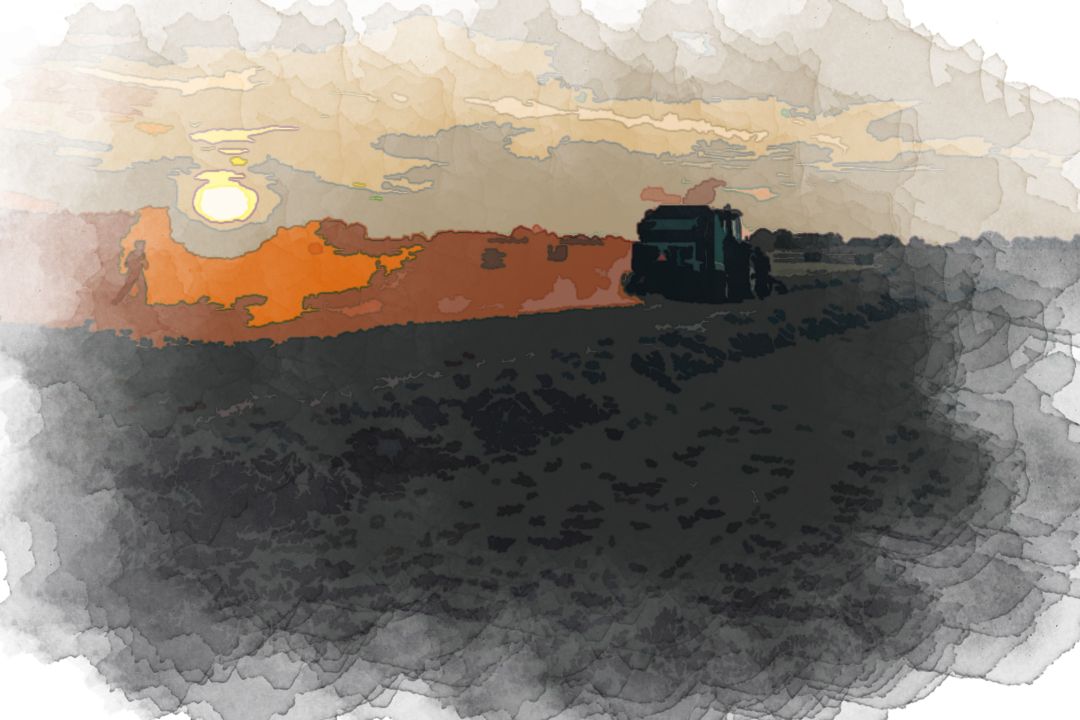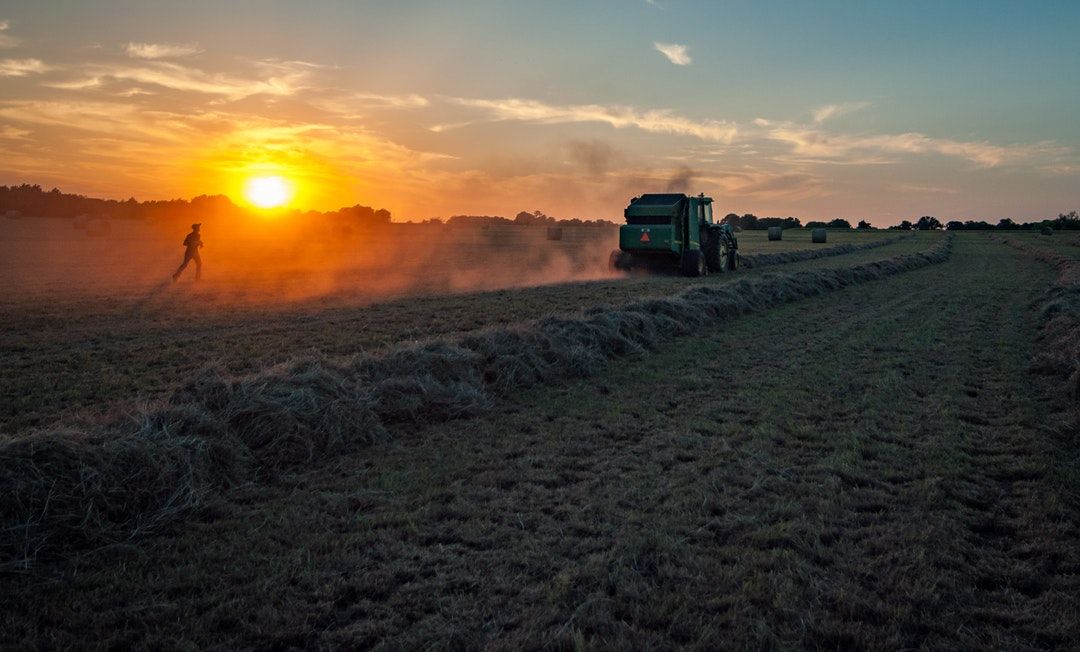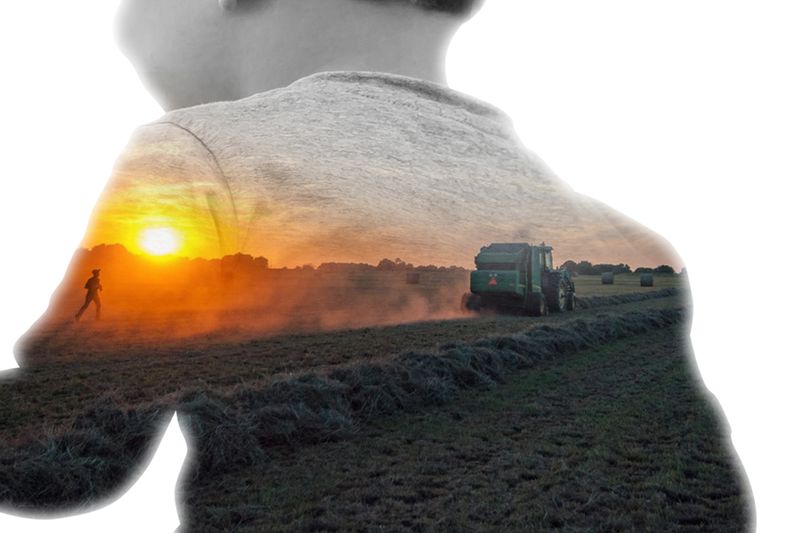And the One That Destroys the Land?

You Left Your Son on the Field
The golden hue of the late afternoon sun bathed the sprawling fields in a warm glow, while the earth beneath Sophia's feet responded with clouds of dust, dancing and swirling in the lingering light. She couldn't help but laugh—a deep, echoing chuckle that seemed to carry across the entire farm—as she watched her son, Alexander, chasing the last rays of the day with a wild abandon only a child possesses. His small figure, silhouetted against the sun, was a testament to the joy found in simple pleasures.
We ought to thank God for that. Yes, the man who tills the land is more worthy of respect than any.
— Nikolai Gogol (1809-1852)
The words slipped out of Sophia naturally, a whisper to the winds that held the warmth of the sun and the freshness of the tilled soil. Her heart was filled with a sense of gratitude, not just for the playful spirit of her child but also for the land that provided them with more than just livelihood—it provided life. It was in moments like these that she felt a connection to the earth, a bond that went deeper than the roots of the crops they cultivated. The soil, rich and fertile, was a silent witness to the countless seasons and the toil of those who worked upon it.
Alexander, hearing the tone of reverence in his mother's voice, stopped his frolic and turned back, his eyes wide with curiosity. The setting sun painted his features with a seriousness that seemed beyond his years. He walked back, his gait mimicking the strong, purposeful strides of his father, a man whose hands were calloused from the labor of love he poured into the fields. Sophia watched him, pride swelling in her chest for the young soul that was already showing signs of understanding the weight and worth of their toil.
The days turned to weeks, and the weeks into months. The laughter shared in the fields grew as hearty as the crops that rose from the ground. Sophia and Alexander found joy in the everyday, the routine tasks infused with a sense of playfulness that made the hard work seem lighter. They would often race against each other, Sophia with a basket of produce and Alexander with his toy tractor, vying to see who could reach the barn first. The victor's spoils were nothing more than bragging rights and an extra slice of pie at dinner, yet the competition was fierce and always ended in good humor.
But one day, as the harvest drew near, a real race against time began. A storm was on the horizon, threatening to undo months of labor in a single, furious sweep. Alexander watched his mother's face grow tense as she studied the darkening skies, her usual smile replaced with a line of determination. He knew this was no time for play; this was a moment that called for the strength that came from their deep connection to the land.
"You Left Your Son on the Field," she would later joke, recalling how she had sent Alexander on an urgent dash to the barn for the heavy tarps to cover the hay bales. But as the winds howled and the first drops of rain began to fall, it was no laughing matter. They worked side by side, securing the fruits of their labor, the soil clinging to their boots a testament to their resolve. They were more than just farmers; they were guardians of the earth, custodians of the very ground that sustained them.
In the midst of the storm's rage, there was a moment of clarity for Sophia. She understood that the respect she held for the land was not just born of necessity but of a profound reverence for the cycles of nature and the role they played in it. And as the storm passed, leaving the fields drenched yet intact, she realized that the true harvest they reaped went beyond the tangible. It was the strength of character, the resilience, and the unwavering spirit that were the most precious yields of their labor. Alexander, with his tousled hair and mud-stained cheeks, stood beside her—a young embodiment of the ideal that Gogol had so eloquently spoken of.
We ought to thank God for that. Yes, the man who tills the land is more worthy of respect than any.
— Nikolai Gogol (1809-1852)
As they returned to the house, the setting sun breaking through the clouds to cast a rainbow across the clearing skies, Sophia knew that the lessons learned in the fields, among the crops and the rich earth, would guide Alexander for a lifetime. And in that knowledge, there was a joy that no storm could ever diminish.

The planksip Writers' Cooperative is proud to sponsor an exciting article rewriting competition where you can win part of over $750,000 in available prize money.
Figures of Speech Collection Personified
Our editorial instructions for your contest submission are simple: incorporate the quotes and imagery from the above article into your submission.
What emerges is entirely up to you!
Winners receive $500 per winning entry multiplied by the article's featured quotes. Our largest prize is $8,000 for rewriting the following article;

At planksip, we believe in changing the way people engage—at least, that's the Idea (ἰδέα). By becoming a member of our thought-provoking community, you'll have the chance to win incredible prizes and access our extensive network of media outlets, which will amplify your voice as a thought leader. Your membership truly matters!


